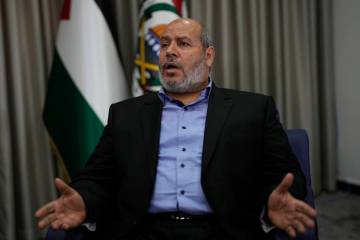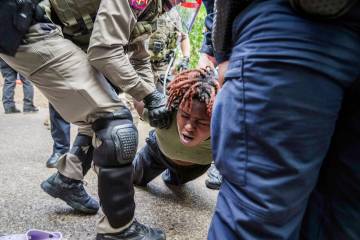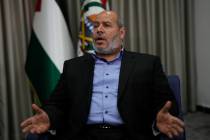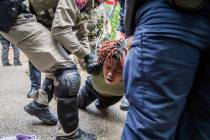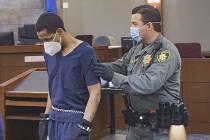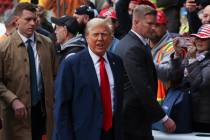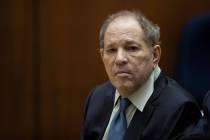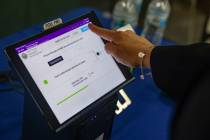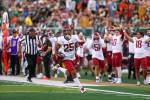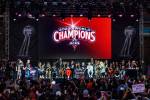North Las Vegas mayor didn’t willfully break ethics rules, panel decides
North Las Vegas Mayor Shari Buck scored a partial victory in her attempt to dismiss a state ethics complaint against her Wednesday.
The mayor tried to get the Nevada Ethics Commission to toss out a complaint accusing her of ethical lapses stemming from her involvement in a contested City Council race.
While the commission, meeting in Carson City, ruled she hadn't willfully violated ethics laws, its commissioners decided they would hold a hearing at a later date to determine whether she had technically violated those laws.
The complaint, filed in August by a North Las Vegas resident, alleged in part that Buck violated conflict-of-interest laws during a June City Council meeting by offering an opinion on whether to canvass or hold a new election for the Ward 4 seat. Buck then abstained from voting on the matter.
The ethics complaint said Buck tried to "influence the outcome of or advocate for the passage or failure of a matter on which she intended to abstain."
The complaint also alleged Buck didn't adequately disclose her reasons for abstaining from that vote.
Challenger Wade Wagner won the June 7 election over incumbent Councilman Richard Cherchio by a single vote. It was discovered that an ineligible vote had been cast in the race. The City Council then had to decide among options including canvassing the results anyway or ordering a new election for Ward 4.
During a June 15 meeting, the council voted to hold a new election in one precinct.
Buck, who had publicly supported Wagner, abstained from the vote, saying she had contributed to his campaign and her husband worked for the campaign.
The city later decided to redo that meeting June 30 after concerns were raised about whether the initial meeting had violated open meeting laws because it was not properly agendized.
During the June 30 meeting, Buck again abstained from voting on whether to certify the results of the election. She referred to her June 15 disclosure about her reasons.
The ethics complaint took issue with comments Buck made before recusing herself from the vote.
Before she stepped out of Council chambers, Buck said, "OK, then I want to take this opportunity just to express my opinion before I abstain and leave the room. I have grave concerns that the direction this council has chosen to go in is not only wrong but illegal."
She went on to say that Matt Griffin, former deputy secretary of state for elections -- retained by the city to advise council members about their options concerning the election -- had advised the council to canvass the votes "but the council has chosen to disregard" that opinion.
"I'm very concerned about this prospect and what's going on," she said.
Cherchio also excused himself from the June 30 vote.
The remaining three council members approved a new election for one precinct in the city. That election was later blocked by a judge. Wagner was sworn into the seat in mid-July. Cherchio challenged the election in court and lost and is appealing the case to the Nevada Supreme Court.
Mark Hutchison, Buck's attorney, argued Wednesday that her comments on June 30 referred to the council's actions at the June 15 meeting. She was criticizing the council's actions during that meeting, not advocating for a particular vote at the June 30 meeting, he said.
The mayor said she was happy with the commission's decision, and she denied doing anything ethically wrong.
She had sought the advice of the city's legal counsel concerning both matters mentioned in the complaint before the council meetings, she said.
Contact reporter Lynnette Curtis at lcurtis@reviewjournal.com or 702-383-0285.





